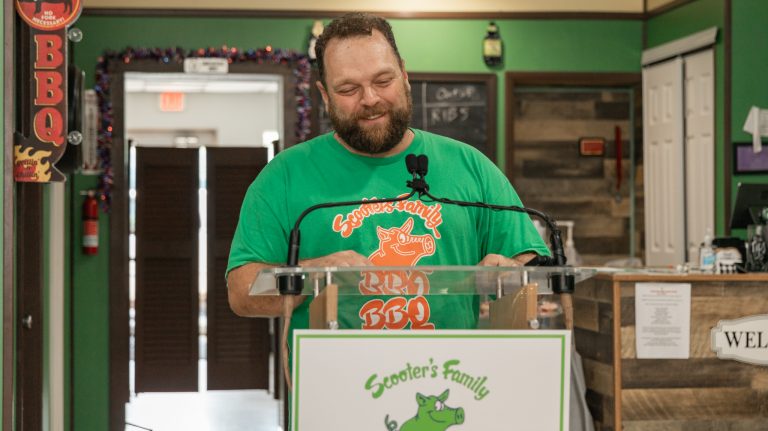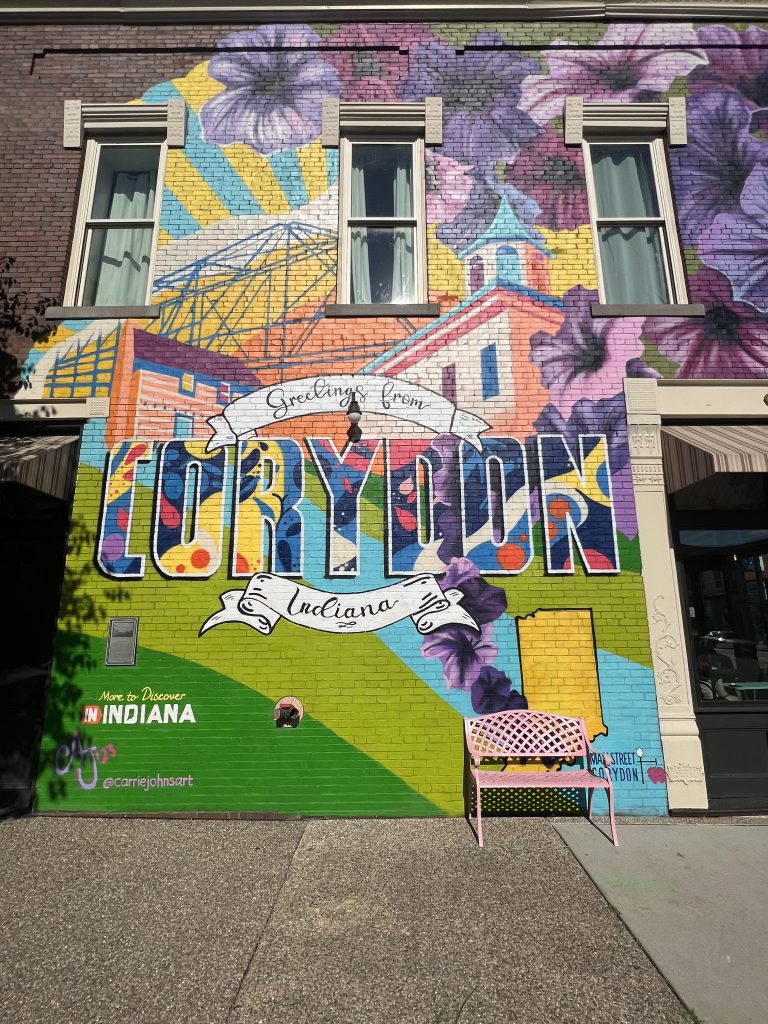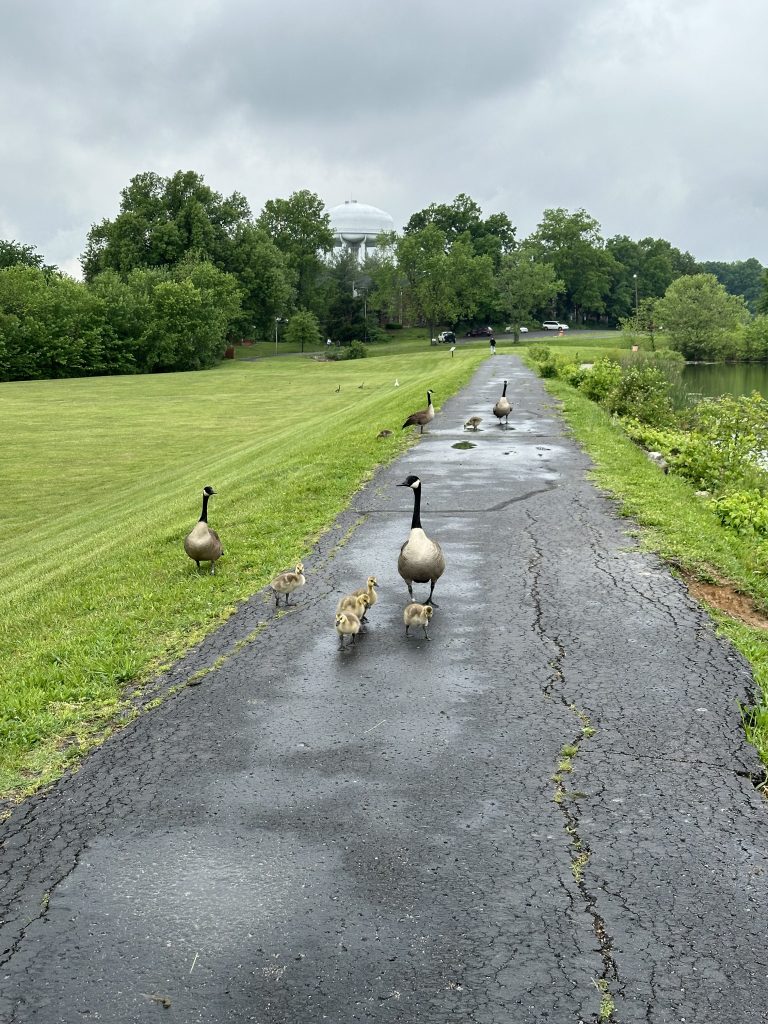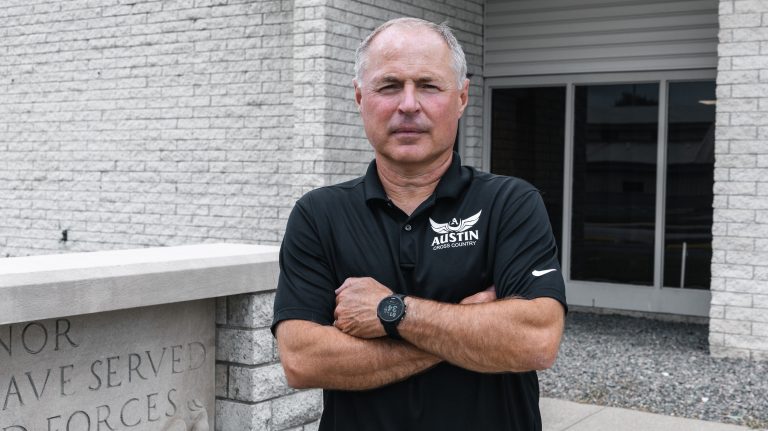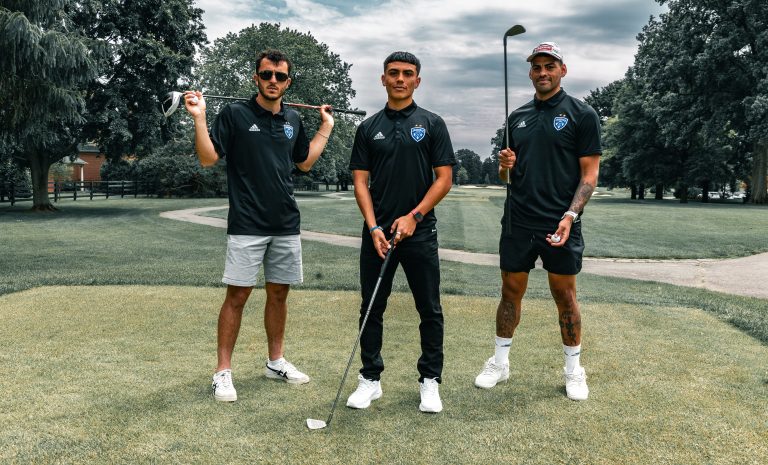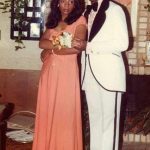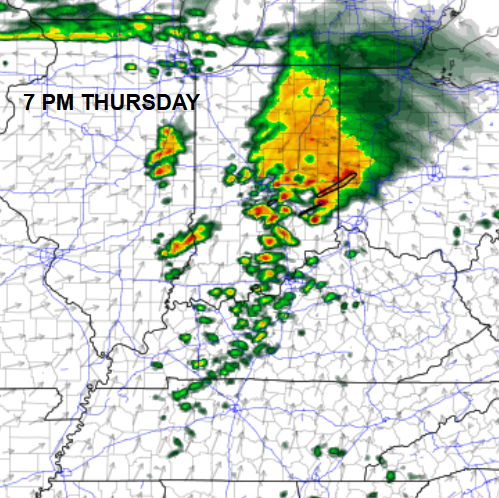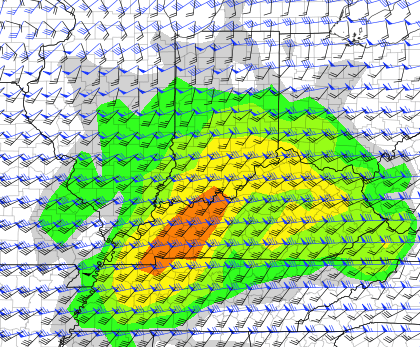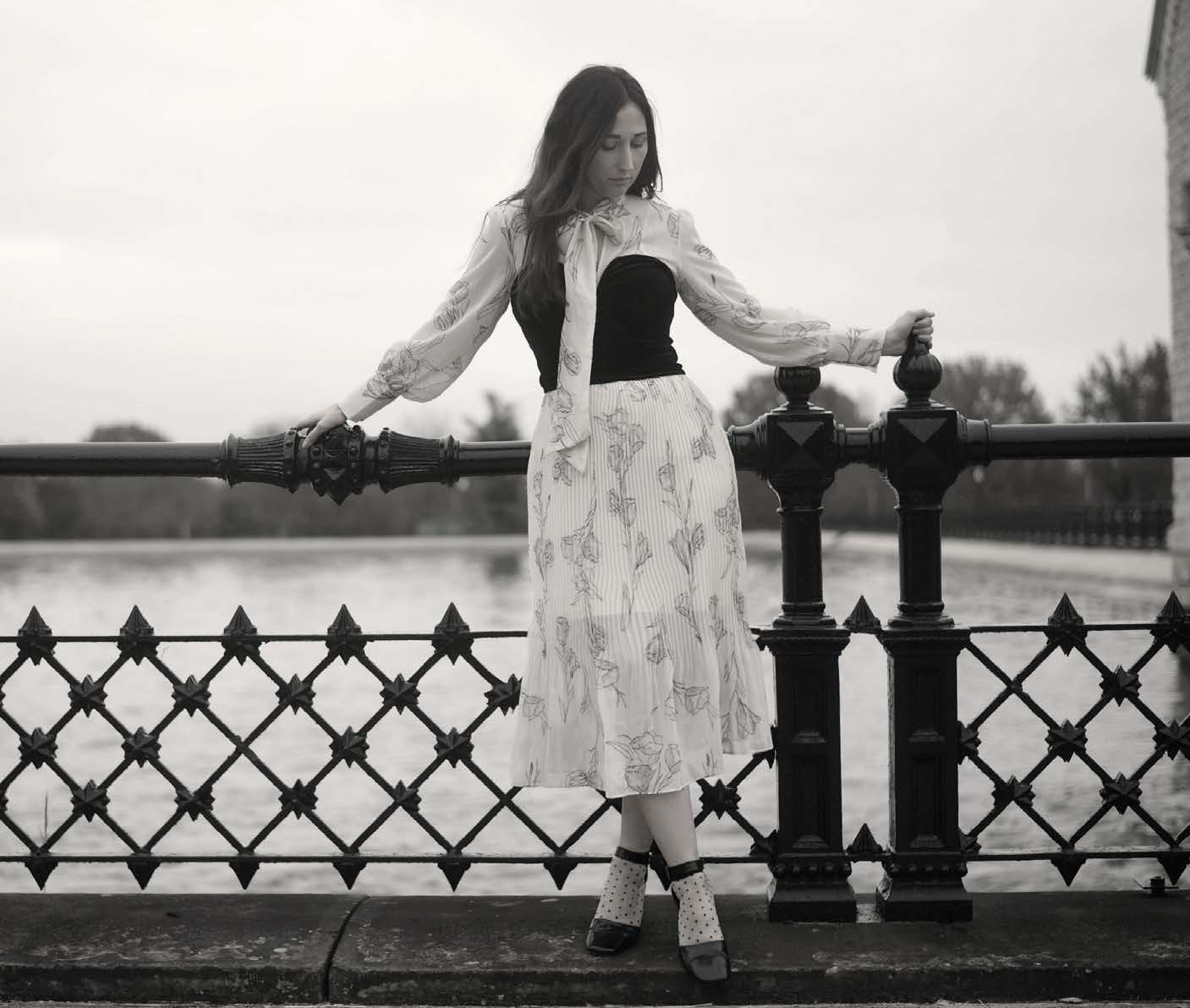
By Miranda Mcdonald
The bookcase was empty. As I stood in front of it, I tried to imagine all the books I would one day place on its many shelves. I tried to picture all the beautiful, little things I would first arrange and then rearrange several times before deciding
that they were in just the right spot. I will put all of my favorite things on this
bookcase. It will be beautiful, and I will smile every time I see it.
However, at the moment, all I could see was the emptiness spanning the length of each shelf.
“Spending six dollars on coffee seems
ridiculous,” my mom said as she opened the
box that was sitting on the tiny, wooden table
beside her.
The table was the only thing dividing the kitchen and living room area in my new
apartment. We had moved the last of the boxes containing all of my belongings into the space
that day, and she had noticed that I didn’t have a coffee maker.
“I like going to the local coffee shop in the
morning,” I quickly replied. My gaze still fixed
on the white bookcase.
I held the book I was currently reading in both hands. My fingertips skimmed its cover.
The texture of the leather and the weight of its pages felt familiar. It was the only thing that was recognizable in this unfamiliar space that currently surrounded me.
There are just so many shelves to fill, I thought.
“You have a lot of natural light to work with,”
my mom said. She was now standing behind me.
“The light does make the place feel a lot bigger
than my last apartment,” I replied.
Though, both spaces were about the same square footage. It was just a few days prior that I decided to break my lease, pack up my life, and move into this new
space. I was still emotional about the decision. My old apartment was my first home after the divorce. I had hoped to heal there. I wanted to rediscover who I was there, and I loved the window in the kitchen. Its frame was large enough to touch the
ceiling. Its structure was sturdy enough for me to sit in, and in the mornings I would do just that while letting the sun pour in on my face. However, the walls in my old place began to feel heavy.
They had seen and heard too much. They had witnessed the many days I sat on my kitchen
floor, sobbing. With my head in my hands and my knees pulled into my chest, I begged for it all to end. When these moments hit, nothing felt real. Only sadness. So, numbness became my closest friend. She was the one I could turn to. I felt she
was the only one who truly understood me.
I welcomed her with my arms wide-open, pushed most of my other friends away, and entered into a relationship with a completely broken man. I was broken, too.
During that time, no matter who I was around or what I was doing, I felt alone. But numbness
was always there to take me by the hand. We would dance through the long hours of the night,
dangerously close to the water’s edge of that deep and vast ocean called depression. Until one day, hand in hand, we jumped into its watery depths and sank ever so slowly to the bottom. For a while, it became easy to stay in this dark place. The shore above me had just become so very small and now felt out of reach.
It wasn’t until the day he said he was leaving that I finally felt the warmth of the sun on my face again. I was standing in the kitchen window with my back to him. Pearl Jam’s album Ten spinned on my record player. It was an album we had listened to on repeat while driving back from Kansas City a few months prior. I flew out to meet him while he
was on the last leg of a two-month road trip. He was a writer suffering from a momentary case of writer’s block and a lifelong battle with depression.
He hoped the excursion would cure him of both. I didn’t face him as he spoke. I couldn’t. I just stood in the kitchen window with my gaze fixed on my neighbor’s dog. His name was Jake and he was standing by the fence in the backyard, barking at something that was just out of view. Tears rolled out of my eyes and soaked my cheeks, but I never turned to look at him.
“I am moving back to Chicago,” he said.
“What did you expect? You always knew I was going to
leave. I am not your father. You cannot save me.”
—
I never knew my biological father. He passed away right before my sixth birthday. I only
remembered that he was always barefoot during the summer months. There was a clothesline that stood at the top of the hill in my grandmother’s backyard. I always chased my cousin through the maze of cotton hanging from its wooden structure.
He always parked his little red truck at the bottom of that hill. And my grandmother would always yell at him from the side porch.
“You are supposed to wear shoes when you
are outside,” she would scold.
“I like the way the earth feels on the bottom of
my feet,” he would yell back.How dare you bring up my father, I internally
screamed. He knew exactly how to hurt me, and that was
what he was best at.
After he left that morning, I threw my Pearl Jam record out that same kitchen window. I decided I would never listened to that album again, and I decide I would never talk to that broken man again. But for the first time in a long time, I felt
the hot rays of the sun on my face, and its warmth was beautiful.
—
“The hard part is over,” my mom declared.
Startled, I looked at her and worried that she had
somehow heard all the thoughts I was currently
lost in.
“Your big furniture is placed. Now, all you have
to do is unpack some of these little boxes and then
tackle that bookshelf,” she continued.
No, of course she hadn’t heard.
“I have no clue how I will fill it,” I replied.
My attention was now back on the bookcase, and the tone of my voice exposed the slight anxiety I felt over the task.
“You’re overthinking it, Miranda.”
“Isn’t that what I do best?” I remarked as I placed
the first book onto the bottom shelf.
There. Now, that wasn’t so bad.
—
It was the second day in my new apartment. Boxes still littered almost every corner of my
living room, and I had already lost interest in unpacking all of them. A close friend offered to help me organize the mess that had now taken over my living room. She brought wine to get us motivated for the task, so we sat at my small table and poured ourselves a glass.
“What will you put on your bookcase?” she
asked. “I mean, I know you have books, but do
you have that many?”
“I haven’t really thought about it. There are so
many shelves.” I explained while balancing the
wine glass between two fingers.
I then began to grind the ball of my foot into the wooden slab that
braced the legs of my chair. My habit of fidgeting with both hands and feet when feeling anxious always gave me away to my mother when I was trying to get away with something while growing up. And now, I was almost certain it was giving
me away to her.
“Just fill it with books and other items that make
you happy,” my friend said as her gaze turned to
the boxes sitting on the floor below us.“I am still trying to figure out what makes me
happy,” I explained.
“Oh. Come on. You have so many things to be
happy about,” she replied slowly.
I believe she thought that her careful pronunciation of each word would make me actually believe it.
“Do you think we ever escape our bad
memories? Or do you believe they just continue
to haunt us like ghosts roaming the dark halls of
our mind, our entire life?” I asked.
This time my hands were both on the table and my feet were
completely still. “What do you mean?” she asked as she reached for the wine bottle sitting next to her left elbow.
“Mine seem to haunt me on occasion. It’s as if
I can’t get away from them. Sometimes they play
over and over again in my head like a broken
record getting stuck on one unbearable song. I
want so badly to unplug the player, but it feels like
the power chord is always just out of reach, so the
only way to get it to stop is to run,” I explained.
“Run where?” she asked.
“Anywhere,” I said with a hint of exasperation.
“Miranda, what are you running from?” she
questioned.
“Some days, I honestly can’t tell if I am running
away from these bad memories, or simply running
away from my own happiness.”
The lunacy surrounding this statement made me feel completely uncomfortable, so I shifted
awkwardly in my chair the moment the words came out of my mouth. I had never admitted this
to anyone before. Not even to myself. Instead of immediately responding to my confession, she sat there for a moment. I felt so uncomfortable and exposed.
I wanted to fill the
silence now surrounding us with something. I wanted to crawl under the table. I wanted to
do anything except sit in that silence. However, I decided to join her in this place of quiet for a few moments.
“Miranda, you are in a new space. You have
a chance for a fresh start. Start here. Don’t run.
Make new memories in this new space. Start
today. Maybe, begin by deciding what you want
to put on your bookcase,” she finally replied as
she took another sip of her wine.
What is it with everyone and this bookcase?
—
The next morning, I sat up in bed and peered through my open bedroom door. The empty
bookcase was in my line of sight. My head pounded. The bottle of wine I consumed the night before was surely the cause of my current hazy state. The sun was so bright. It was pouring into all my windows. My phone was ringing.
“Hello,” I said as I wiped away the last bit of
sleep still lingering in my eyes.
“I found the old globe that you bought at the flea market a few years ago,” the voice stated on the other line.
It was my mom. She had a habit of waking me up early on the weekends with random
calls, such as this.
“The one with the broken piece on the bottom?” I questioned.
“Yes, it must have fallen out of one of the boxes
I brought over from your old apartment. I heard it
rolling around in the backseat when I was driving
to see your grandmother this morning. Did you
not notice it was missing?”
I hadn’t noticed it, but then again, I also hadn’t
finished unpacking the majority of the boxes from
my move, yet. So many boxes to still unpack.
“I assumed it was still in one of the smaller
boxes I haven’t unpacked yet in my living room,”
I stated.
At this point I had forced my way out of the comfort of my bed and was standing over a pile of boxes sitting close to the bookcase.
“Well, do you still want it?” she pressed.
I reached down into one of the boxes and slowly pulled out a book. It was one I had found featuring influential female photographers. A black and
white image of a woman floating in dark water adorned its cover. Her face was the only thing that appeared to be above the surface. The rest of her
body floated lifelessly below. The famous photo was taken by a female photographer I had long admired: Toni Frissell.
The image was so haunting, but yet beautiful that I couldn’t help but smile.
“Of course I still want it,” I replied as I placed
the book in the corner of one of the case’s middle
shelves.
There, that looks perfect.
I took a moment to admire the book and how it looked on the shelf. The sun illuminated the worn edges of its cover and for a moment her pale skin and white dress looked like it was glowing. There she was, floating. Although almost completely
submerged, she was still breathing because her head was still above water. She almost looked
heavenly.
“Ok, I can leave it out for the next time you
come home to visit. That way you won’t forget
it,” she replied.
“That sounds perfect, Mom,” I replied.
I was now reaching in the box for another book.
“Have you filled your bookcase yet?” she asked.
Normally all her questions would annoy me with
it being so early in the morning. However, today
felt different.
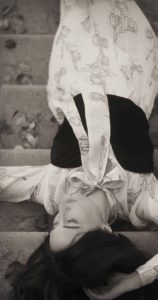
“No, Mom. I haven’t,” I replied with a slight smile
on my face and book in my hand. “ However, I
think today is the perfect day to start.”








